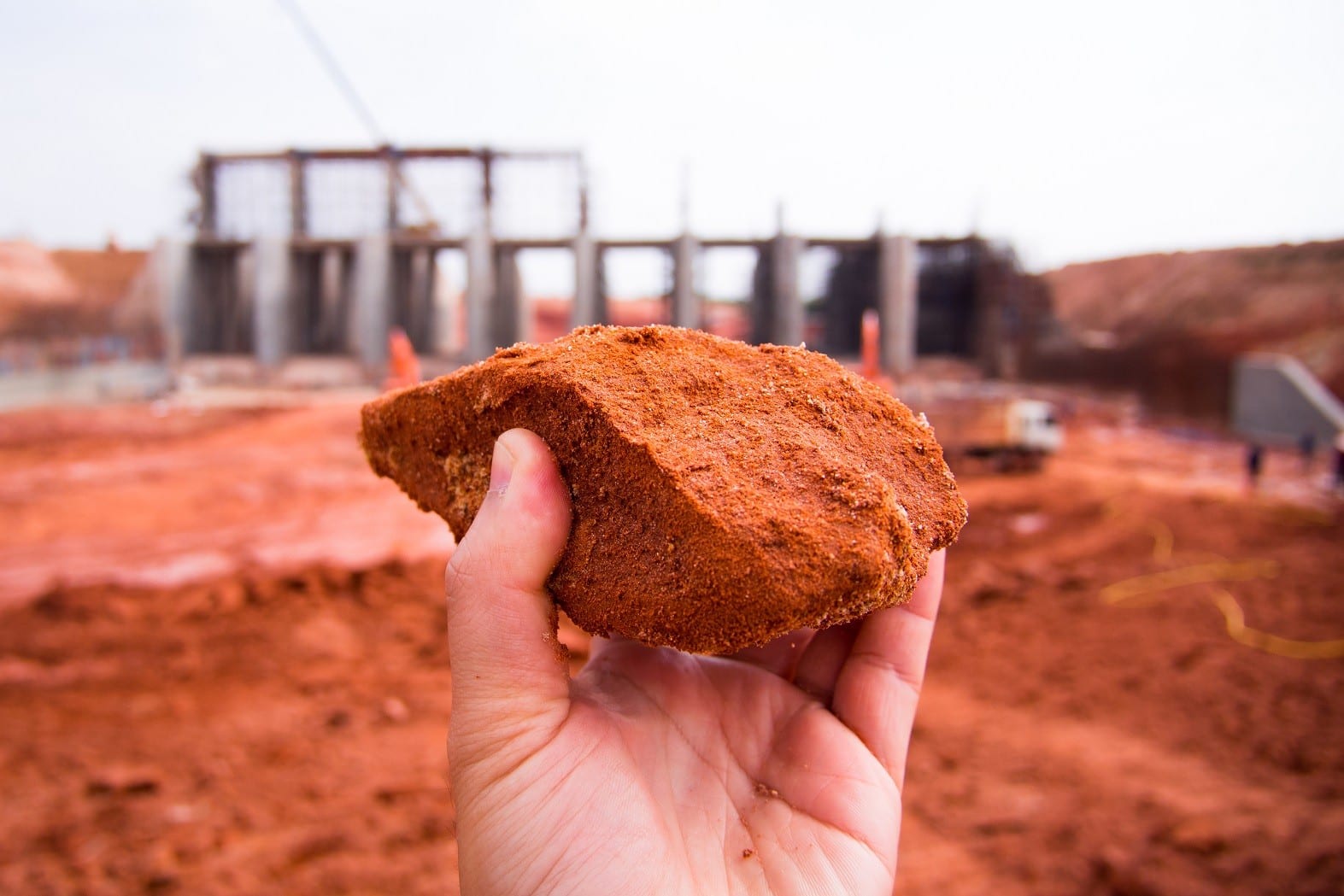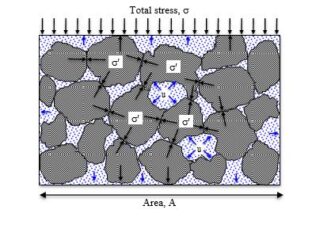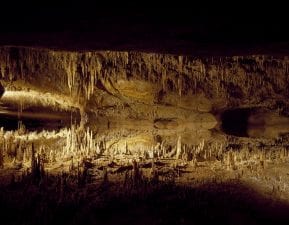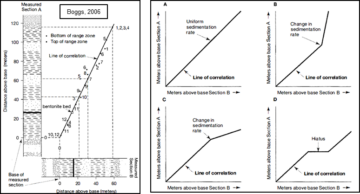Here at Ingeoexpert, we understand the relevance of training our students in a sector as important as geotechnical engineering. This is why we commit ourselves to creating first-rate courses, from the choice of subject matter and teaching staff, to the program structure, including which educational resources to incorporate.
Geotechnical engineering, also known as geotechnics and ground engineering, is a relatively recent branch of engineering that studies and analyses how the earth responds to human interaction by combining knowledge and methods within the framework of civil engineering and geology.
Through geotechnical engineering, we can study anything from the characteristics of the soil on which a building is going to be supported and the stability of slopes dug in a motorway, to the analysis of the consolidation of an embankment in a road, the foundation of a bridge and the study of tunnel conditions.
View all Geotechnical engineering courses
As we can see, geotechnical engineering is essential to projects such as public works, building, mining and energy. Thus, specific training in this field, through courses with a specific practical focus, is considered particularly necessary.
Our centre offers: technical, specific and practical courses with a focus on enabling students to obtain in-depth knowledge that they can put into practice in their professional development.
What geotechnical engineering courses do we offer on our virtual campus?
As mentioned, our centre places special emphasis on four areas within geotechnical and geological engineering to offer the best courses:
a) Foundations
Any professional establishing their career in geotechnical engineering projects must have in-depth knowledge of the suitability of a superficial or deep foundation of a given terrain’s structure. This requires an analysis that includes multiple criteria and factors, such as balance and stability, as well as durability and resilience to external factors. In addition, the foundation must be laid as safely, economically and quickly as possible.
That’s why we consider it extremely important that training in this area be given by experts who combine theoretical and practical skills. Thus, our foundations course teaching staff includes university professors from the Universidad Politécnica de Madrid, the Universidad de Burgos and the Universidad Politécnica de Valencia, among others, as well as geotechnical engineering masters professors and professionals with extensive experience in the sector.
Some of the courses taught on this subject are:
- Geotechnical Foundation Analysis for Load Resistance Factor Design (LRFD)
- Principles of soil mechanics
b) Slope stability
In both civil engineering and mining projects, slope stability is a challenge for geotechnical engineers. The behaviour of the excavated ground in a linear worksite or in an open-pit mine requires an optimal prediction process. For this reason, some fundamental preliminary steps must be followed:
- Preliminary land study: by means of on-site mapping of the area to be studied, study of previous surveys and carrying out geotechnical survey campaigns.
- Representation of data in specific programs for observing the detailed global cartography and geological-geotechnical zoning parameters.
- Entering the data in slope stability programs to perform the analyses.
Training will be given by specialist geologists and geotechnical engineers, with over 20 years of field and office experience.
Some of the courses on this subject offered by our virtual campus are:
c) Embankment stability
Just as with slope stability, stability in relation to embankments, causeways and earthworks are key to civil engineering projects, especially in terms of linear worksites. This is why it’s especially important to have in-depth knowledge of the technical foundations of soil mechanics, such as the theory of consolidation, and other important aspects that will allow our students to expand their understanding of the analysis of these structures.
d) Underground works
Underground works are extremely important to infrastructures such as roads, railways and canals, as well as for water transport, telecommunications services and waste storage. To achieve a cost-safety balance of these elements, we must understand their geotechnical structural behaviour.
When building tunnels, there is usually a high degree of uncertainty due to the difficulties faced when carrying out the study and land survey through prospecting during the project phase, either due to the adverse orography of the land, or due to expropriation problems, etc. This, in turn, means that corrections or a complete inspection of the land on which the excavation work is to be carried out isn’t possible. The on-site geologist must then consider all these geotechnical uncertainties in relation to the project, as well as the constructive problems that appear during the excavation of the tunnel, and carry out constant and detailed technical monitoring of this excavation, in order to either guarantee the safety of the project or, if necessary, propose appropriate measures to be taken.
So we can see how relevant geothermal energy is to tunnel projects, which generally require the input of professionals with this specific knowledge.
Some of the courses on this subject offered by our virtual campus are:
Additionally, our centre offers other geotechnical courses that complement the above-mentioned subjects. For example, courses on the mechanics of rocks, taking an in-depth look at soil improvement techniques, geotechnical instrumentation and the characteristics and functionalities of micropiles, courses that deal with the description, analysis and interpretation of geotechnical engineering laboratory tests, and courses on liquefaction, as well as courses on geotechnical modelling software using finite elements.
Some of the courses taught on these subjects are:
- Probabilistic Analysis for Geotechnical and Civil Engineering
- Geotechnical Site Investigations and Engineering Parameters for Geotechnical Design Analyses
- Rock Mechanics
- Principles of soil mechanics
- Constitutive Models in Geotechnical Engineering Applications
How do our geotechnical engineering courses work?
All of our courses are offered 100% online, through our intuitive Virtual Campus. Topics are taught through:
- Videos
- Interactive multimedia content
- Live classes
- Texts
- Case studies
- Evaluation exercises
- Additional documentation
The content is updated in each new course edition, so that knowledge is acquired around the latest news and state-of-the-art geotechnical engineering technology.
One of the most interesting aspects of our courses is the use of live videoconferences, in which teachers and students interact in a continuous exchange of knowledge and problem solving. In addition to this, students can make use of the platform’s forum, a meeting point where they can interact with teachers and other students.
A tutoring system will also be established by email, which will resolve any possible doubts about the course, and which will serve as a point of connection for students with specific questions on each module.
Students can also download all course documentation, including texts, videos, video conferences and exercises.
Is a certificate offered?
At the end of the course, and as accreditation of knowledge acquired and of the technical and practical training, students who correctly complete the corresponding evaluation tests of the geotechnical engineering course will obtain an academic certificate issued by Ingeoexpert. This digital certificate is protected by Blockchain technology, making it unique and tamper-proof, thus enabling companies to verify its authenticity.
It can also be downloaded by students, forwarded by email and shared on social networks, as well as embedded on any website. You can see an example here.
Through these geotechnical engineering courses, we want, on the one hand, to offer specific knowledge to sector professionals, and on the other hand, to allow students of civil engineering, geology and related degrees to enter this very interesting world of geotechnical engineering, as well as anyone who wants to learn about it.
We continue to work to provide you with the best training with the best teachers.





